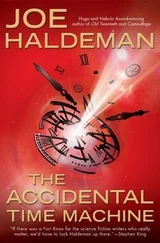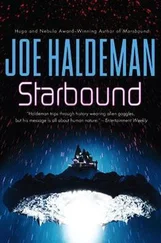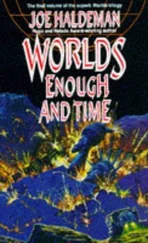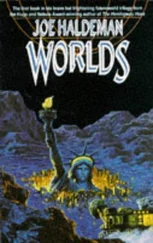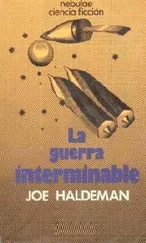“You know a guy named Willy Joe Capra?” He pulled out tape to match the top and tore it. It had an unexpected smell, raspberry.
“No, never heard of him.” Not until this morning, from Sara.
“You’re lucky. He’s our friendly local Mafia connection.”
Pepe went all over cold. “Jesus, Norman. What did you do to his hand?”
“Oh, that wasn’t Willy Joe. That was his bodyguard, or something.” He pulled out long strips for the vertical sides. “His name’s ‘Solo’; I guess that’s why they sent him after a musician.”
“And what did you do to him?”
“He did it to himself. I suggested he take a hammer and apply it to his gun hand.”
“Madre de Dios.” Pepe lowered himself to sit on the windowsill, a foot off the floor. “And where was his gun?”
“The police took it from him.”
“The police who were just here?”
Norm nodded. “They have some sort of scanning device.”
“I’ve seen it on the cube.”
“They didn’t use it on me. When this fellow threatened physical violence, I pulled out my own gun.”
“You carry a gun ?”
“Not under normal circumstances, Pepe; haven’t since the army. But I knew who I was dealing with.”
“Let me get this straight. You pulled a gun and said, “Let’s go out to the workshop and smash your hand.’”
“No, that was his idea. He offered to take a hatchet and chop off a finger.”
“But you, you decided to be nice to him?”
“Well, he could have a new finger in a week. Actually, I think he wanted to use the hatchet on me.”
“And lose all that blackmail money?”
“I don’t think their brains work that way.” Norman went to the refrigerator. “I don’t understand them any better than you do. Want a Coke or something?”
“Something stronger. Early as it is.”
“Me, too. White plonk?” Norman pulled out a ball of white wine and squeezed them two tumblersful. “Look, we’d had a meeting. Willy Joe and some lawyer and this bodyguard. A lunch meeting. They told me what they knew, and it was correct.”
“So how much did they want?”
“Well, I don’t know. I got up and walked out.”
Pepe kneaded his face. “You have a death wish, Norman?”
“Sometimes I think I do. Or at least place a low value on survival. Con permiso.” He picked up the buzzing phone. “Buenas—oh, it’s you.” He pushed a red “record” button on the side.
“That’s not possible. We’re having company over for dinner tonight, and I—
“I suppose you might.” He listened, shaking his head. “Just you and Capra. And we talk outside the house, on the sidewalk, not inside.” He pushed the “end” button and looked at the phone.
“That was the bodyguard?”
“No, the lawyer.” He drank half the glass of wine and replayed the conversation.
Capra congratulated Norman on being cute (“qué guapo”) and gave the phone to the lawyer. He said the rules were different now, Norman having upped the ante by using violence. They had one more thing to show him, and if they couldn’t do business then, they would reveal his secret in time for the evening news, and just be done with it.
Come to Capra’s house, 211 SW Third Avenue, at five, prepared to make a million-dollar credit transfer. Otherwise, they’d come join him and his company for dinner, and make it a really interesting party.
“Southwest Third. Wonderful neighborhood,” Pepe said.
“If you’re in the market for dope or prostitutes,” Norman said. “I never have one without the other, myself.” He drank some wine. “Showdown, I guess.”
“You sound like you’re looking forward to it.”
He smiled. “An end to it, possibly. Don’t tell Rory anything. I’ll go ahead and fix dinner, and leave her a note.”
“What, “Go ahead and enjoy dinner; I’ll be back after I shoot some blackmailers’?”
“It won’t come to that. Don’t worry.”
“You want me to come along with you?”
“Thanks, but no. I’ll probably just give them the million.”
And then they’ll just leave you alone, Pepe thought. “Of course I’ll keep your secret. But I think you’re making a mistake.” A mistake that could derail everything.
“I have a few hours to think on it. Maybe I’ll come up with something.”
Pepe had a few hours, too. He finished his glass of wine. “Well, I’ve got to run. Fill me in on it tomorrow?”
“Sure,” he said. “Mañana. Hasta . ”
“Mañana.” Pepe left through the front door, trying not to hurry. Another piece had fallen into place, something in the back of his mind ever since Sara had mentioned Willy Joe Capra’s name.
 Norman
Norman
Norman watched him leave. Fill you in on it if I’m still alive.
Well, he could distract himself for a while preparing dinner. He hadn’t gone to Publix after lunch, as promised. What could he conjure up out of the pantry for a couple of cheeseless, eggless, milk-free vegetarians? He turned the house back on and asked for random Vivaldi, music for vegetarianism.
He studied the orderly array of boxes, cans, and jars on the pantry shelves, and perhaps was inspired by the music: Italian bean pie—a layered terrine of bean purees; red, white, and green. When you sliced it, it looked like the Italian flag.
Taking the three cans from the pantry, he asked the house for the recipe, and it appeared on the screen above the range. “Larger,” he said, not wanting to use his glasses.
He peeled and sliced potatoes and put them on to simmer, and then worked on the three colors of beans, sautéing them variously with onions, garlic, and shallots, and then setting them aside to cool. By then the potatoes were done; he tossed them with herbs Provence, olive oil, and white wine from the grocery-store ball.
He started to pour himself a glass, but then realized this might be the last wine he would taste in this world. He went to the top of the rack and pulled down a ’22 St. Emilion, maybe a week’s salary in a bottle. He pulled the cork and poured a third of the bottle into their largest balloon glass, then carefully preserved the rest of the bottle with nitrogen and knocked the cork back in. The Slidells were pleasant, but they weren’t close enough or important enough for a ’22 Bordeaux.
Everything had to cool for a while, so he turned off the music and carried the wine into his studio. He tuned the cello and ran through the latest partita he’d been developing for The Coming, but he was too distracted to work on it. He turned on a new book of old European folk dances and sight-read his way through Spain and Portugal, sipping wine between pieces.
The house reminded him when it was 1600. He carefully spooned the layers of the terrine into a loaf pan, then drained the wine and oil from the potatoes and tossed them with a grind of pepper, a sprinkle of vinegar, and a little more herbs Provence. He put it all in the refrigerator and left Rory a note saying he was out; if he was late for dinner, make their traditional lettuce-and-tomato salad, minus the goat cheese, God forbid we should exploit goats.
He put on a jacket against the afternoon cool and locked up, went into the garage, slid the heavy gun into its holster, and pedaled away.
Plenty of time. He dawdled at the park’s exercise trail, watching young and old run and jump and heave and stretch. He should get back into that. Maybe tomorrow, if there is one.
He pedaled slowly along the mile-long green belt, and then picked up speed as the traffic alongside him slowed, grinding into downtown. Contemplating a new life rule: “Never be late for a gunfight.” Noting that Willy Joe and the lawyer would assume he was armed, so would be protected by armored clothing. Get close enough to shoot for the head. Get Willy Joe and then the lawyer, if you live long enough. Was this the wine speaking? Or just the war. Both, probably.
Читать дальше
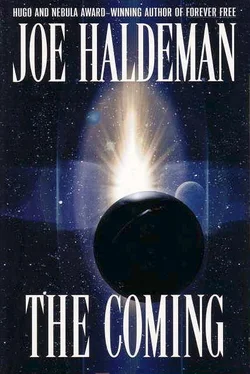
 Norman
Norman